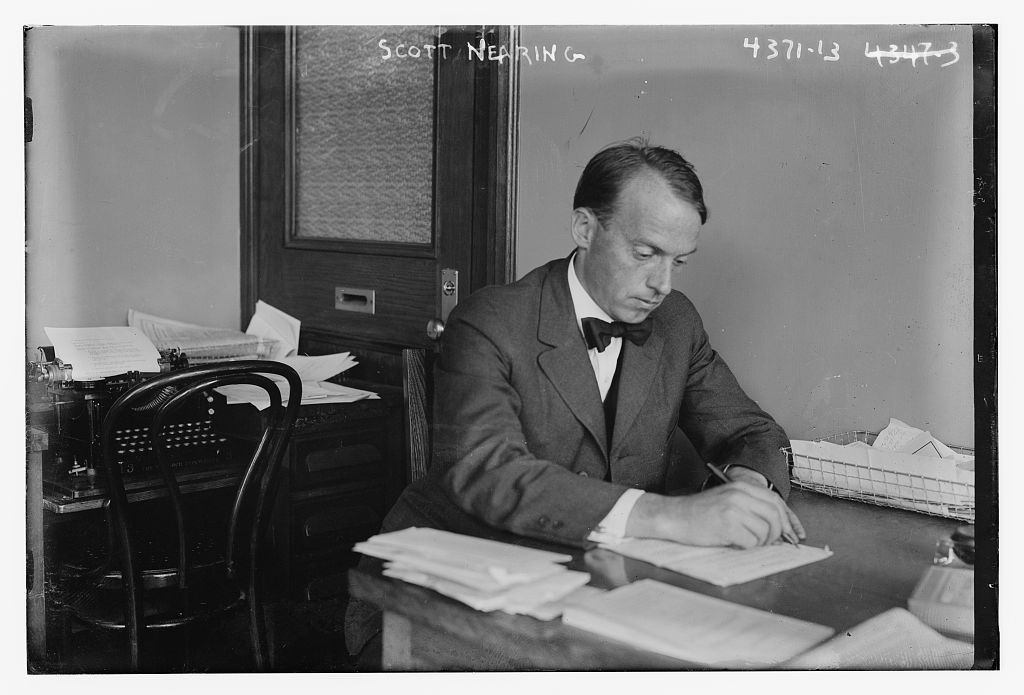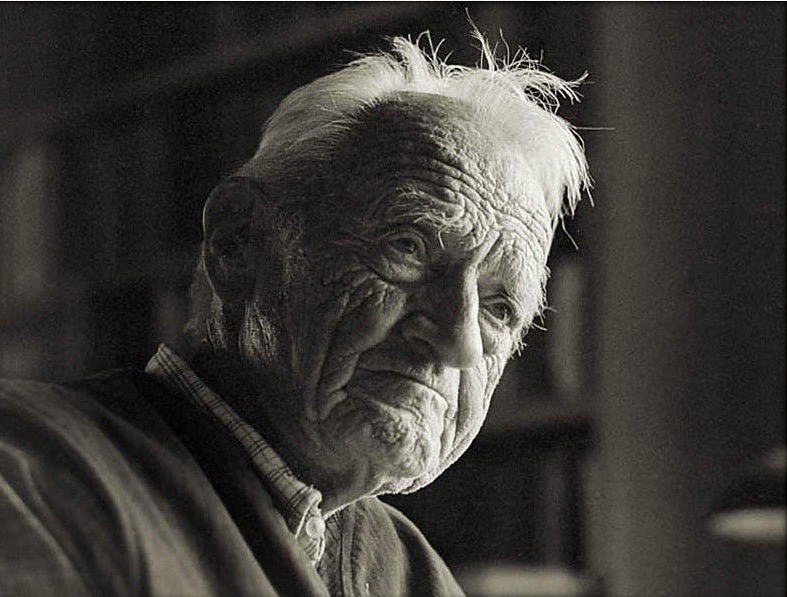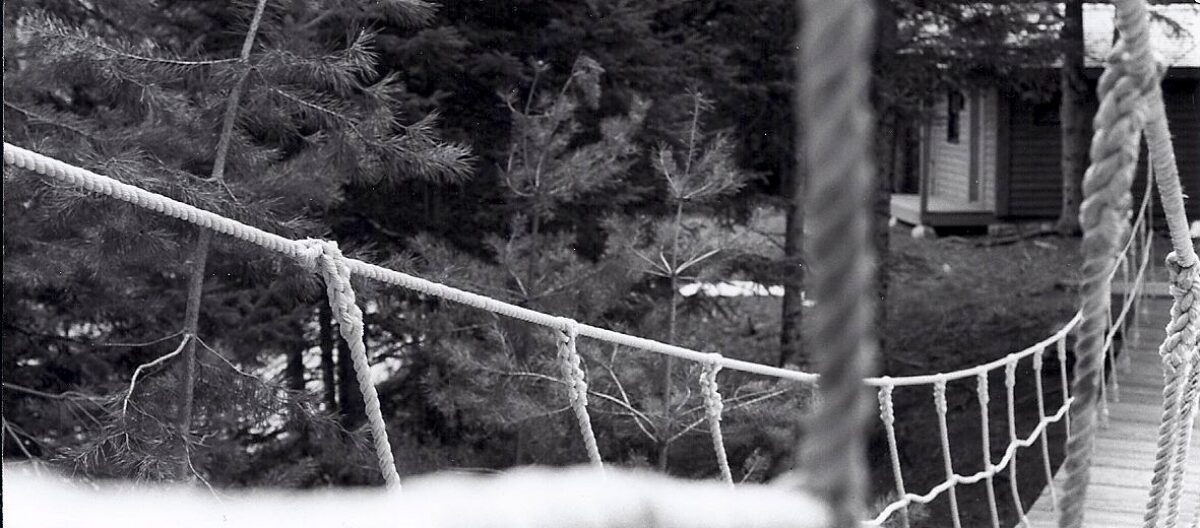SCOTT NEARING
Backwoods Blog;
in the woods and on the road…

Through decades our New England homesteading has given us a compelling interest in everyday life, helped to maintain our health, provided year-round health-giving food and shelter on use-economy basis, with chores suited to our strength and interest, furnished a small cash income over and above farm expenses, given us a large margin of free time in which to carry out our educational work, enabled numerous guests to see our life at first-hand and share it to a degree, and led quite a number of people to go and do likewise. As the Great War proceeds and the night of oblivion gathers over the American Way of Life, a homestead becomes increasingly important for anyone whose post of duty lies inside the narrowing confines of western civilization and who want to live a quiet, simple and harmless, unharassed life…Our life in the country is not an ivory tower retreat. It is an instance and an example of sane living in an insane world. It is a means of contacting nature, in many ways as important as contacting society. It is a desirable, limited alternative to one segment of the existing social order and is a refuge for political deviants. It is also a way of life for the increasing number of young people who see through the allurements and baubles of civilization and are looking for a way to live sanely, with self-respect and decency, in a troubled world.
Life struggle is unceasing. Whether we like it or loathe and resent it, we participate. We have no choice in the matter. We can take some part in determining direction and the day-to-day course of the struggle. Thus we may help to win the perilous fight by leading humanity beyond civilization into the promised land of equalized opportunity and shared experience. To attain this goal we must keep humanity aligned with the forces that improve the social pattern and assist in the expansion of an expanding universe.
Scott Nearing The Making of a Radical: A Political Autobiography (1972)
*
Scott Nearing is probably best known as the back-to-the-land homesteader guru, who along with his wife Helen, authored “Living the Good Life” depicting their life in rural Vermont and the coast of Maine. They moved from New York City to the Green Mountains in Vermont (Winhall/Jamaica) in 1932 during the depths of the Great Depression and established a viable organic farm, a complex of nine stone buildings and a modest maple sugaring operation. In 1952 they relocated to Harborside, Maine on Penobscot Bay and built another stone structure-based homestead where the Good Life Center is located today.
Scott was already fifty years old when he began his homesteading project in Vermont. Before that he was an associate professor of economics at Wharton School of the University of Pennsylvania in Philadelphia from 1906-1915. At the end of the 1914-15 school year, and as the United States readied to enter World War I, his contract was not renewed and he was fired for his subversive (and unpatriotic) views. In 1919 Scott Nearing was tried under the Espionage Act of 1917 for writing a pamphlet published by Rand House titled The Great Madness. Although Nearing was not convicted, his highly publicized trial along with the trial of Eugene V. Debs, a five-time presidential candidate with the American Socialist Party (who was convicted), led some to believe that these were two of the most dangerous men in America. In the 1920s Nearing spent most of the decade traveling abroad researching and writing, and although his book publisher had dropped him after the trial he kept publishing pamphlets through small independent presses. While he was living in Germany during the late twenties and early thirties he witnessed the rise of Hitler and the National Socialist German Workers’ Party and Nearing wrote a small paperback published at his own expense in 1933 called Fascism, which was one of the first books written in English on the dangers of German fascism. After Scott and Helen started their homestead experiment they continued to travel and lecture during the winter months and then they would return and resume the gardens in the spring.
According to the stories I’ve heard, Scott Nearing came to Houlton during the early 1970s to speak at Ricker College and while he was here he gave a lecture at the Houlton Unitarian Church. While he would have been in his nineties at the time, I’m sure he gave a solid address to the crowd. I have thoroughly searched the Unitarian Society’s archive here at the church for record of his visit or a transcript, but at this point I must report I am (as of yet) empty-handed. I still have two solid leads to investigate, and if I am successful I will be sure to report back. Although Nearing’s work covers over a hundred years now, I still find his economic, historical and political analysis to be fresh and relevant to the current realities we are facing in the world today. That alone is enough to read or re-read Nearing once again. Check out the selected bibliography included below. Live each day with integrity.
In the woods,
Dave
April 21, 2022

Selected Bibliography
1908 Economics (with Frank D. Watson). New York: Macmillan.
1911 Social Adjustment. New York: Macmillan.
1912 Women and Social Progress: A Discussion of the Biologic, Domestic, Industrial and Social Possibilities of American Women. New York: Macmillan.
1913 Social Sanity. New York: Moffat, Yard.
1914 Reducing the Cost of Living. Philadelphia: G.W. Jacobs.
1915 Anthracite: An Instance of Natural Resource Monopoly. Philadelphia: John C. Winston Co.
1916 Poverty and Riches:A Study of the Industrial Regime. Philadelphia: John C. Winston Co.
1916 Social Religion: An Interpretation of Christianity in Terms of Modern Life. New York: Macmillan.
1950 The Maple Sugar Book. New York: John Day.
1954 Living the Good Life. New York: Schocken Books. (reprint 1970)
1972 The Making of a Radical: A Political Biography. New York: Harper & Row.
1979 Continuing the Good Life. New York: Schocken Books.
